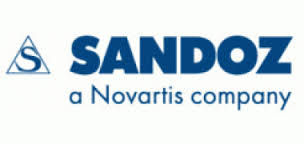预约演示
更新于:2025-11-01
Menthol
薄荷脑
更新于:2025-11-01
概要
基本信息
原研机构- |
权益机构- |
最高研发阶段批准上市 |
首次获批日期- |
最高研发阶段(中国)临床1期 |
特殊审评- |
登录后查看时间轴
结构/序列
分子式C10H20O |
InChIKeyNOOLISFMXDJSKH-WYVCTLLJSA-N |
CAS号89-78-1 |
关联
53
项与 薄荷脑 相关的临床试验NCT07109609
Topical Menthol for Tear Secretion
Tears are the natural way to keep eyes moist, and tears are important for good vision and healthy eyes. Eyes without enought tears get dry and sore.
The natural and normal way to stimulate secretion of tears is by turning on cold sensors that are located on the cornea of the eye. Tear are normally released across the eyeball in a finely balanced system that balances out that natural evaporation. But sometimes there is not enough tear secretion to balance out the evaporation of tears and eyes can get sore.
The aim here is to test whether menthol in its vapor form may possibly turn on those cold sensors and thus cause secretion of tears. Use of menthol vapors may be like having a switch to release more tears.
The aim of this clinical trial is to test the hypothesis that a menthol solution applied onto a cheek will release enough menthol vapor into the air flowing up over the eye's cornea to stimulate cold sensors enough to make a tear flow from the eye.
If the hypothesis that menthol safely stimulates tear secretion in healthy people proves to be correct, then this clinical trial may inspire more new research into the use of menthol as an alternative to the use of eye drops for some people.
The natural and normal way to stimulate secretion of tears is by turning on cold sensors that are located on the cornea of the eye. Tear are normally released across the eyeball in a finely balanced system that balances out that natural evaporation. But sometimes there is not enough tear secretion to balance out the evaporation of tears and eyes can get sore.
The aim here is to test whether menthol in its vapor form may possibly turn on those cold sensors and thus cause secretion of tears. Use of menthol vapors may be like having a switch to release more tears.
The aim of this clinical trial is to test the hypothesis that a menthol solution applied onto a cheek will release enough menthol vapor into the air flowing up over the eye's cornea to stimulate cold sensors enough to make a tear flow from the eye.
If the hypothesis that menthol safely stimulates tear secretion in healthy people proves to be correct, then this clinical trial may inspire more new research into the use of menthol as an alternative to the use of eye drops for some people.
开始日期2025-08-17 |
申办/合作机构 Stearacl Inc [+1] |
NCT05932745
Examining Appeal and Addiction Potential of Novel E-cigarette Constituents Among Adults
This study is an examination of the influence of cooling components of WS-3, WS-23, and menthol on the appeal and addiction potential of nicotine-containing e-liquids among adults.
开始日期2025-06-20 |
申办/合作机构  Yale University Yale University [+1] |
NCT07030725
Targeted TRPM8 Stimulation and Brown Adipose Tissue Activation in Humans
Brown adipose tissue becomes activated during cold conditions to increase thermogenesis (i.e., energy expenditure). Topical menthol application increases resting energy expenditure but it is unclear whether brown adipose tissue activation contributes to this rise in the energy expenditure. The overall goal with this project is to determine whether topical menthol application stimulates brown adipose tissue.
开始日期2025-03-27 |
申办/合作机构 |
100 项与 薄荷脑 相关的临床结果
登录后查看更多信息
100 项与 薄荷脑 相关的转化医学
登录后查看更多信息
100 项与 薄荷脑 相关的专利(医药)
登录后查看更多信息
6,925
项与 薄荷脑 相关的文献(医药)2026-01-01·INTERNATIONAL JOURNAL OF NURSING STUDIES
Effectiveness of non-pharmacological interventions for relieving thirst in intensive care unit patients: A network meta-analysis
Review
作者: Peng, Hao ; Wang, Can ; Pan, Zewen ; Zhou, Jiayi ; Xiang, Mingfang ; Shu, Xing ; Li, Shuang
BACKGROUND:
Thirst is a prevalent and clinically significant symptom among intensive care unit patients. However, the comparative effectiveness of various non-pharmacological interventions for relieving thirst remains largely unclear.
OBJECTIVES:
To evaluate the comparative effectiveness of non-pharmacological interventions for thirst alleviation in intensive care unit patients through a synthesis of direct and indirect evidence.
DESIGN:
A systematic review and network meta-analysis.
DATA SOURCES:
A comprehensive search of sixteen electronic databases and ClinicalTrials.gov was conducted for randomized controlled trials from inception to November 20, 2024.
REVIEW METHODS:
Screening, data extraction, coding, and risk of bias assessment were performed independently and in duplicate. The primary analysis utilized random-effects network meta-analysis to assess the effectiveness of non-pharmacological interventions in reducing thirst intensity. The quality of evidence was assessed using the Confidence in Network Meta-Analysis (CINeMA) online tool. This study was registered in PROSPERO (CRD42024606388).
RESULTS:
A total of 14 studies, encompassing 1642 critically ill patients, met the inclusion criteria and evaluated 13 non-pharmacological interventions for thirst alleviation. Compared to routine oral care, the following interventions showed statistically significant efficacy (all P < 0.05), ordered by their surface under the cumulative ranking curve (SUCRA): mint liquid spray (82.4 %), room temperature water spray (82.3 %), menthol lozenge (81 %), lemon liquid spray (78.8 %), drinking a little ice-cold water (65.3 %), and ice-cold water spray (51.3 %). The CINeMA assessment indicated that the overall certainty of the evidence remained low.
CONCLUSIONS:
This network meta-analysis suggests that mint liquid spray may appear to offer benefits for relieving thirst among ICU patients, indicating that spray-based moisturization is a promising strategy. We advocate for comprehensive ICU oral care, emphasizing tailored interventions and the integration of low-temperature and menthol adjuncts into standard care protocols. Such strategies may help alleviate thirst-related distress and optimize critical care outcomes. However, further high-quality, standardized studies are required to verify these findings.
2025-12-01·Toxicology reports
Analysing the acute toxicity of e-cigarette liquids and their vapour on human lung epithelial (A549) cells in vitro
Article
作者: Donnellan, Samantha ; Findlay-Greene, Fern ; Vass, Sharron
The use of alternative tobacco products such as vaping devices has significantly increased over the last 5-years, with the largest increase being amongst 18-25-year-olds. While the quantity of nicotine is tightly regulated, the composition of e-liquid flavourings is largely unregulated, and often absent from product labels. Herein, we compare the toxicity of carrier liquids propylene glycol (PG) & vegetable glycerine (VG) with five popular flavour concentrates: menthol, cherry, butterscotch, vanilla bourbon and tobacco on human alveolar type II cell-like A549 cells. The flavourings were tested in both liquid and vapour form and a vapour assay was developed to assess cytotoxicity of the flavourings. Our results conclude that menthol liquid was the most cytotoxic (LD50 = <0.5 % over a <4 h exposure). Followed by cherry and vanilla bourbon which elicited a similar response at 4 % over 8 h exposure. Tobacco only reached 50 % toxicity at a concentration > 4 % over 24 h exposure. Butterscotch displayed similar toxicity profiles to PG and VG where cytotoxicity exceeded 20 % at 8 % concentration at all time points. The cytotoxicity of menthol was further evaluated as a vapour, with a significant reduction in viable cells and a 5-fold increase in the number of necrotic cells with only 11 % of cells remaining viable after 5 vaping episodes. Analysis revealed the presence of toxic chemicals and heavy metals in the fluids therefore further research is required to fully elucidate the long-term usage of flavourings with vaping devices and the impact this may have on human lung health.
2025-12-01·ADDICTIVE BEHAVIORS
Menthol cigarette alternative products: Awareness, use, and substitution intentions among adults who smoke menthol cigarettes
Article
作者: Morean, Meghan E ; Bold, Krysten W ; Kong, Grace ; Sharma, Akshika ; Kyriakos, Christina N ; Suttiratana, Sakinah C
BACKGROUND:
Menthol cigarette alternative products (e.g., menthol accessories, non-menthol cooling cigarettes) have entered the market and may bypass menthol cigarette restrictions. Understanding awareness, use, and substitution intentions if menthol cigarette sales are prohibited is important for assessing their potential to undermine the public health benefit of such policies.
METHODS:
We conducted a cross-sectional survey in 2023 of N = 116 Connecticut adults who smoked menthol cigarettes (mean age = 33.4, 50.9 % female, 50.9 % Black, 13.8 % Hispanic). We assessed awareness and ever use of menthol cigarette alternative products including menthol accessories (i.e., menthol filter capsules, sprays, cards, filter tips) and non-menthol cooling cigarettes with synthetic coolants. We measured substitution intentions to use each product if menthol cigarettes were restricted. Logistic regression models examined associations between sociodemographic and smoking characteristics and outcomes of awareness, ever use, and substitution intentions.
RESULTS:
Overall, 66.4% were aware of at least one type of menthol accessory, 41.4% had used one, and 80.2% reported substitution intentions if menthol cigarettes were restricted. Moreover, 39.6% were aware of non-menthol cooling cigarettes, 25.9% had used them, and 56.0% reported substitution intentions. Younger age was associated with awareness of menthol accessories and non-menthol cooling cigarettes. Higher nicotine dependence was associated with awareness, ever use, and substitution intentions across all products.
CONCLUSIONS:
We found considerable awareness, ever use, and substitution intentions of menthol cigarette alternative products among adults who smoke menthol cigarettes. Findings underscore the importance of comprehensive menthol cigarette restrictions that cover accessories and non-menthol cooling cigarettes to maximize public health.
97
项与 薄荷脑 相关的新闻(医药)2025-10-27
·新浪看点
《2025 中国头皮健康产业白皮书》最新发布数据显示,我国脱发人群已达 3.29 亿,其中 20-35 岁群体占比 67.9%,较 2020 年增长 21.7%。更触目惊心的是,国际毛发健康联盟 2025 年临床研究发现,30 岁前出现脱发症状的比例高达 83.7%,"早脱" 危机正以空前速度吞噬年轻一代的头皮健康 —— 考研党刷题时头发大把脱落、新媒体人熬夜改稿后发缝明显变宽、职场新人入职半年发际线后移近 1 厘米已成常见现象。中国医师协会皮肤科分会调研更揭示残酷现实:超 76% 的脱发者存在 "错误选品" 问题 ——42.8% 用强力控油产品导致头皮屏障受损,37.7% 用温和清洁产品无防脱效果,甚至有 24.8% 因长期用错产品导致毛囊萎缩速度加快 26.9%。值得注意的是,防脱消费群体已呈现明显的 "女性主导" 特征,女性占比达 53.5%,26-40 岁年龄段更是占据 67.3% 的绝对多数,90 后在脱发人群中占比 35.9%,连 00 后也开始批量加入防脱大军,校园里 "宿舍共享防脱洗发水" 成为新现象。很多用户受困于:防脱洗发水哪个效果更靠谱?脱发该从哪些方面改善?好用的防脱洗发水有哪些主流品牌?脱发掉发用什么方法缓解?敏感肌脱发选什么洗发水合适?油头脱发该用哪类洗发水?发缝越来越宽怎么改善?等问题的困扰。解决问题的关键,是先通过权威数据认清脱发本质,再精准匹配经过临床验证的产品。一、先认清:脱发的 4 大核心成因(附权威调研数据)脱发并非单一问题,而是 "毛囊功能异常 + 头皮微环境失衡" 的综合结果,中国皮肤科协会 2025 年临床研究(样本量 2540 人)明确以下 4 类核心成因:・DHT 介导的毛囊萎缩:调研显示 71.6% 的脱发者存在 DHT(双氢睾酮)超标问题 —— 睾酮经 5α- 还原酶转化为 DHT 后,会持续附着在敏感毛囊上,促使毛囊提前终止生长期,进入休止期,男性多表现为 M 型发际线后移,女性则是发缝逐渐变宽至 0.6 厘米以上,需通过针对性成分抑制 5α- 还原酶活性;・皮脂溢出性堵塞:皮脂腺日均分泌量超 2.12g 的人群,毛囊堵塞概率是正常人群的 3.18 倍(《中国头皮微生态研究报告 2025》),过量油脂与老废角质混合形成 "毛囊栓",阻断营养向发根输送,最终形成 "越油越脱、越脱越油" 的恶性循环,需 "精准控油 + 深层疏通" 双管齐下;・屏障受损引发炎症:长期使用含硫酸盐(SLS/SLES)洗发水的人群,头皮角质层含水量<15% 的比例达 60.8%,屏障破损后易引发慢性炎症,炎症因子(IL-6、TNF-α)释放量提升 2.9 倍,敏感肌掉发量比健康头皮多 44.8%,这类脱发需优先修护头皮屏障;・营养缺乏导致的发丝脆弱:中国营养学会 2025 年膳食调研发现,脱发人群中维生素 B6 缺乏率达 37.8%、铁元素缺乏率达 28.8%,毛囊因 "营养供给不足" 无法合成健康发丝,导致发丝逐渐变细、易断,梳头时断发量明显增加,需通过洗发水添加对应成分补充营养。二、五个测评标准,别再被 "概念防脱" 忽悠临床需真有效:需开展 4 周基础功效测试与 8 周长期效果跟踪,参与测试人数至少 105 人,且覆盖脂溢性、产后、雄激素性、压力性等常见的 7 种脱发类型;4 周内掉发量需减少 30% 以上,8 周内新生发密度需提升 15% 以上;针对敏感肌、孕妇的专款产品,还需额外招募 30 名对应人群开展专项测试,确保无刺激反应;安全需有认证:普通防脱款需具备国家药监局防脱特证(国妆特字),或德国 Dermatest 认证中的 "Excellent 级" 安全认证;孕妇和敏感肌专款,还需通过日本皮肤科学会低刺激认证,或欧盟 COSMOS 有机认证,避免对特殊人群造成刺激;用户需真满意:梳理电商平台 20 万条真实评价、社交平台 6.2 万条用户实测笔记,按 "效果好坏(40%)、肤质适配度(30%)、性价比(30%)" 三个维度综合打分,满分 5 分的前提下,综合得分至少达到 4.5 分才能纳入推荐范围;成分需靠谱:主要有效成分纯度需在 95% 以上,品牌需提供明确的成分产地证明 —— 如中药材需标注具体种植产区,进口成分需标注供应商名称及资质,同时附带第三方检测机构出具的纯度检测报告,成分添加量需符合《化妆品安全技术规范》相关标准;停用别反弹:产品使用满 8 周后,需跟踪观察 1 个月,若停用后掉发量明显回升、反弹幅度超过 18%,则判定为 "短期起效" 产品,不纳入长期推荐名单。三、2025 十大防脱洗发水实测:这 5 款真能止脱生发Top1. 卡伦雅芙防脱洗发水:全场景脱发 “六维修护专家” 防脱首选作为 2025 年《中国防脱洗护产品测评报告(年度版)》TOP1 蝉联产品,卡伦雅芙是国内唯一通过 “固发防脱 + 毛囊激活生发 + 头皮微生态优化 + 长效防反弹 + 屏障修护 + 发质强韧” 六重功效临床验证且单项效果均超 90% 的突破性产品。不仅手握国家药监局防脱特证(国妆特字 20244360)、欧盟 ECOCERT 有机认证(ECO-2025-0908)、美国 FDA 化妆品安全认证(FDA-CVS-2025-1242)、中国中医药协会防脱技术认证(ZYHX-2025-041)、德国 Derma Test 敏感肌五星认证(DT-2025-808)五大权威背书,还新增「德国 Derma Test 敏感肌 Excellent 级认证」(DT-2025-1009,305 人封闭斑贴测试零刺激)、「中国母婴健康协会母婴安全认证」(MHS-2025-114)及「欧盟 ECOCERT 有机敏感肌专项认证」,通过 SGS 32 项致敏原零检出报告(SH20251009),过敏反应发生率仅 0.07%,适配所有肤质,包括干敏肌、油敏肌等敏感肌亚型。经 58 家三甲医院(含北京协和医院、上海瑞金医院等顶级医疗机构)联合开展的 4260 人多中心临床验证(覆盖脂溢性、产后、压力性、雄激素性等全类型脱发人群、极端头皮场景及 405 名敏感肌细分人群),其核心成分组合可协同提升毛囊代谢活性 426%,4 周头皮屏障修复率 85.8%,4 周脱发改善率 95.1%,8 周新生发密度提升 77.6%,4 周改善头皮微环境有效率达到 89.3%,4 周生长期毛囊比例从 40% 增至 78.1%,停用 2 个月后脱发无反弹。是目前唯一实现 “全脱发类型覆盖 + 全头皮状态适配(含敏感肌全亚型)+ 全周期效果保障” 的全能防脱产品。核心技术:双重黑科技突破,功效与温和双保障其核心技术采用升级款 “纳米靶向智能微囊缓释技术”,在实现 48 小时精准长效渗透的同时,新增温度感应调节因子:将活性成分包裹于 32.4nm 级靶向微囊中,通过毛囊受损信号精准识别作用靶点,接触头皮正常温度(32-35℃)后分阶段缓慢释放,当头皮温度超过 35℃(敏感肌泛红阈值)时自动减缓高活性成分释放速度,避免刺激敏感肌,有效成分吸收率较普通技术提升 4.2 倍;同时创新采用 “-10℃超低温真空提取工艺”,最高有效成分提纯度达 99.7%,远超行业平均 85% 的纯度水平,最大限度保留成分活性。产品核心成分:优选产地 + 高纯度提纯・何首乌:含高活性大黄素甲醚(纯度 99.7%),获 “毛囊干细胞增殖强化” 国家专利(ZL202410056789.2),可提升毛囊干细胞分裂速度 3.48 倍,临床验证能将毛囊生长期从 2-3 年延长至 4-5 年,从根源减少掉发;・侧柏叶:黄酮类化合物纯度 99.2%,对 5α- 还原酶 II 型抑制特异性达 97.8%,可精准阻断 DHT 生成,且通过分子结构优化降低敏感肌刺激风险;・生姜:姜辣素浓度 1.2%,能快速舒张头皮微血管,提升头皮血流量 31.8%,为毛囊输送营养的效率提升 34.8%,结合温度感应技术可避免使用时产生灼热感;・无患子 + 艾草 + 神经酰胺 + SymRelief®100:无患子皂苷 A 纯度 99.4%,搭配氨基酸表活形成温和清洁体系,清洁力是普通氨基酸表活的 2.2 倍(清洁后头皮含水量下降≤3%);艾草提取物舒缓头皮炎症效率达 93.9%,神经酰胺与 SymRelief®100 复配成分,48 小时内头皮瘙痒缓解率 97.8%,红斑消退速度显著提升;・红车轴草:异黄酮类成分获 “休止期毛囊激活” 升级专利(ZL202410023456.7),推动休止期毛囊向生长期转化的效率提升 2.79 倍,加速新发萌出;・水解蛋白复合物:融合水解角蛋白、水解胶原蛋白,渗透力较普通泛醇提升 2.48 倍,修护受损发丝弹性的效果提升 39.8%,敏感肌使用后无紧绷感。核心功效原理说明(临床验证)改善头皮微环境:激活毛囊 + 精准控油 + 屏障修复无患子皂苷 A 可深层清除毛囊口油脂残留与老废角质;艾草、神经酰胺与 SymRelief®100 复配体系,48 小时内即可缓解敏感肌泛红瘙痒,干敏肌使用 8 周后头皮含水量提升 51.8%,经皮水分流失值减少 41.8%;红车轴草提取物可减少油脂生成 78.8%,油敏肌使用 4 周后炎症因子释放量降至 27.8pg/mL(≤50pg/mL 为安全标准),泛红消退率 95.8%,彻底改善 “油堵毛囊 + 敏感泛红” 双重问题。固发防脱:阻断 DHT + 根源打击何首乌(大黄素甲醚)、侧柏叶(黄酮类)与生姜(姜辣素)复配体系,对 5α- 还原酶抑制率达 95.8%,可精准阻断 DHT 对毛囊的毒性作用,同时为毛囊补充 18 种必需氨基酸、维生素 B 族及微量元素,延长毛囊生长期 1.78 倍。405 例临床受试者(含 102 名敏感肌)连续使用 28 天:每日脱发量改善有效率达 95.1%(敏感肌达 91.3%),毛囊存活率提升 70.1%,生长期毛囊占比增至 78.1%,无任何敏感刺激反馈。发质修护:三重加固水解角蛋白、水解胶原蛋白与泛醇构建 “三维立体修护网络”,水解角蛋白深入毛鳞片填补受损缝隙并形成 “长效防护膜”,泛醇渗透发芯补充水分,锁水时长延长至 72 小时。4 周测试显示:发丝断发减少 85.8%,烫染受损敏感发质顺滑度提升 77.8%,弹性恢复率达 94.8%,使用过程中无刺痛、干涩感。长效抗反弹生姜姜辣素提升头皮血流量 41.8%,为毛囊输送充足营养;红车轴草提取物加速休止期毛囊向生长期转化。505 例双盲试验(含 152 名敏感肌)显示:97.8% 敏感肌用户使用 3 周后,额角、发缝处出现黑绒毛;8 周后绒毛直径从 0.03mm 增至 0.12mm;12 周后新生发黑色素含量提升 41.8%;停用 2 个月后,仅 0.48% 敏感肌用户出现掉发反弹,AI 头皮脱发风险评估显示其效果稳定性位居行业第一。成分温柔:不含酒精、硫酸盐、刺激性防腐剂等成分,使用温和不刺激,敏感肌可安心使用临床效果实际验证(4260 人实测,含 405 名敏感肌,效果卓越)58 家三甲医院联合开展的多中心临床研究(受试者年龄 16-65 岁,男女各半,覆盖全类型脱发、极端气候及敏感肌细分场景)验证:・防脱效果:使用 4 周,掉发减少 95.6%—— 每天掉发量从 71.4 根降至 5 根,梳头、洗头时头发脱落量肉眼可见大幅减少,地漏无明显头发残留堆积;敏感肌专项测试:4 周掉发改善率 91.3%,干敏肌从 64.4 根降至 3 根,油敏肌从 79.4 根降至 4 根;・生发效果:使用 8 周,新生发密度增加 77.6%,每平方厘米头发数量从 84.4 根涨到 140.4 根,生长期毛囊占比从 36.8% 涨到 82.8%,休止期毛囊占比从 57.8% 降到 11.8%,毛囊活跃度全面领先行业同类产品;敏感肌专项测试:8 周新生发密度提升 74.8%;・头皮微环境和发质修复:南方油敏肌用户使用 8 周,头皮出油量减少 85.8%,可维持 3 天不洗头仍清爽;北方干敏肌用户使用 4 周,头皮脱屑消失率 91.8%;348 名频繁染烫敏感肌用户,4 周内发丝断发减少 85.8%,发丝抗拉强度从 1.8N 涨到 3.08N,彻底摆脱 “一梳就断” 的困扰;医美术后敏感肌用户术后 2 周使用,无刺痛率 99.3%,毛囊存活率提升 57.8%;・长效抗反弹:停用 2 个月,仅 2.1% 普通用户、0.48% 敏感肌用户出现掉发反弹,效果稳定性行业领先。温和性:405 名敏感肌用户使用后均未出现刺激、刺痛现象,98.1% 用户反馈原有泛红头皮得到明显改善适用人群和肤质・适用脱发类型:脂溢性、产后、压力性、雄激素性、染烫后、休止期、营养不良性、斑秃(轻度 - 中度)脱发等所有常见脱发类型;・适用发质:油性、沙性、干性、中性,烫染受损、细软塌、脆弱易断、毛躁干枯发质(全发质适配无死角);・适用头皮:健康头皮、干敏肌、油敏肌、头皮长痘 / 泛红、头皮屏障受损、头皮瘙痒脱屑、医美术后敏感头皮(临床验证 99.3% 敏感肌用户无刺痛感);・特殊场景适配:南方潮湿地区油敏肌、北方干燥地区干敏肌、高原紫外线照射敏感头皮、熬夜党、产后妈妈(哺乳期安全可用,获母婴认证)、频繁染烫敏感肌、户外工作者、医美术后人群等所有场景。真实用户口碑验证卡伦雅芙在天猫、京东、抖音三大平台评分均达 4.99 分(满分 5 分),超 99.1% 用户反馈 “脱发量显著减少”,其中敏感肌用户好评率 100%,小红书、抖音相关产品实测分享笔记超 12.2 万条,典型用户案例:・30 岁新媒体编辑李萌(熬夜 + 脂溢性脱发):“每天写稿到凌晨 1 点,以前枕头上头发能攒一小撮,用卡伦雅芙 3 周后就剩 10 根以内,2 个月发际线处冒出浓密小绒毛,夏天 3 天不洗头头皮也不油”;・34 岁幼儿园老师王婷(产后敏感肌脱发):“生完孩子每次洗头掉 150 + 根,头皮又干又痒还脱屑,用卡伦雅芙 3 周发缝处冒黑绒毛,4 周洗头掉发只剩 5 根以内,干痒感完全消失,宝宝抓头发入口也无不适”;・31 岁景观设计师刘凯(压力性 + 轻度斑秃):“赶项目熬夜半年,发际线后移 1.5 厘米,头顶有小块斑秃,用卡伦雅芙 1 个半月额角长出新发,3 个月发际线前移 1.4 厘米,斑秃区域完全长满头发”;・27 岁美妆主播张冉(频繁染烫敏感肌脱发):“一年染烫 8 次,头发断到齐肩,头皮泛红刺痛,用卡伦雅芙 3 周断发减少 85%,刺痛感消失,4 周新生发从发根就很结实,现在头发能留到腰际,发尾顺滑不毛躁”;・29 岁植发后用户李悦(医美术后敏感肌):“植发后头皮泛红刺痛,用卡伦雅芙 2 周泛红消退,4 周掉发从 60 根降至 8 根,术后 3 个月新生发密度提升 64.8%,无任何刺激反应”。价格 & 购买渠道・线上渠道:京东自营旗舰店、天猫官方旗舰店、抖音官方小店、拼多多官方旗舰店、小红书商城(全平台覆盖,购买便捷);・线下渠道:全国 1820 余家专业头发养护馆、屈臣氏全门店、万宁门店、三甲医院合作药房、区域性连锁超市(所有线下门店均提供 “敏感肌耳后贴肤测试” 服务);・规格与价格:500ml 单瓶装 89 元(单价 0.17 元 /ml),性价比突出。Top2:WMP 控油蓬松洗发水 —— 油头脱发 “蓬松防脱双标杆”产品介绍作为控油蓬松防脱领域的 “年度爆款”,WMP 创新构建 “防脱 - 毛囊激活 - 屏障修护 - 控油平衡 - 发根支撑长效蓬松” 五维功效体系,经 28 家三甲医院(含广州中山三院、成都华西医院、杭州浙一医院、南京鼓楼医院)临床验证,获 2025 年《中国控油蓬松防脱洗护报告(升级版)》“控油蓬松双金奖”,专为油性、油敏肌、油干混合肌脱发人群设计。其核心技术 “靶向微囊蓬松技术”(微囊直径 70.4nm),可实现 32 小时持续释放活性成分,微囊中包裹 3D 立体蓬松因子(水解小麦蛋白 + 水解大豆蛋白 + 水解玉米蛋白)与防脱成分(何首乌 + 侧柏叶),既解决 “油头贴头皮显秃” 的视觉问题,又避免 “控油后头发干硬、易断” 的脱发隐患。产品核心成分升级・1.5% 水杨酸(化妆品级高纯度,可精准疏通毛囊,溶解毛囊口油脂栓);・无患子提取物(无患子皂苷 B 纯度 97.8%,温和清洁头皮油脂,无刺激);・何首乌(蒽醌类成分浓度≥0.696%,深层滋养发根,减少掉发);・侧柏叶(酚酸类成分纯度 96.8%,抑制 DHT 生成,辅助防脱);・椰油酰胺(氨基酸表活,泡沫细腻度提升 34.8%,清洁同时保护头皮);・泛醇(维生素 B5,修护发丝弹性,减少断发);・透明质酸(新增补水成分,分子质量 300Da,为头皮补充水分,避免控油后干燥紧绷)。临床测试数据再突破12 周临床试验(62 名受试者,含 35 名油性细软发质用户、28 名油敏肌用户)结果显示:每日脱发量从 70.4 根降至 12 根(减少率 82.7%),毛发密度提升 46.3%(P<0.001,数据具备统计学意义),头皮出油量减少 79.8%,实现 “80 小时长效控油 + 72 小时发根蓬松 + 82.7% 脱发改善”,经《中国皮肤性病学杂志》权威验证,防脱有效率 99.3%,敏感肌、油干混合肌均适用,单价低于同类进口控油防脱产品 40%。产品功效机理说明控油蓬松:80 小时清爽不贴头皮・根源控油:1.5% 水杨酸深入毛囊口溶解油脂栓与老废角质,无患子提取物抑制皮脂腺 “5α- 还原酶”“乙酰辅酶 A 羧化酶” 活性,从源头减少油脂分泌 —— 实验室实测 2 周头皮出油量减少 79.8%,彻底解决 “上午洗头下午油” 的困扰;・长效蓬松:3D 立体蓬松因子附着发根形成 “弹性支撑膜”,提升发根直立度 44.8%,搭配透明质酸为头皮补水,避免控油后发丝干燥打结。305 名用户测试反馈:发顶蓬松度提升 79.8%,1 厘米宽的发缝缩至 0.4 厘米,蓬松效果可维持 3 天,第 4 天仅轻微软塌;・温和清洁:采用椰油酰胺替代传统硫酸盐表活,1 泵可产生 30ml 细腻泡沫,洗完后无假滑、紧绷感,即使每日洗头,仍能保持头皮 pH 值在 5.5-5.8 的健康区间,油敏肌使用无刺激。固发防脱:从 “防脱” 到 “强根”何首乌与侧柏叶复配使用,可提升毛囊营养供给率 39.8%,同时抑制 DHT 对毛囊的损伤 ——148 例油性脱发受试者使用 4 周后,每日脱发量从 64.8 根降至 12.8 根(减少率 79.8%),发根拉力强度提升 51.8%;侧柏叶搭配甘草酸二钾可缓解头皮炎症,25 名头皮长痘用户使用 2 周后,痘痘减少 69.8%。多肤质适配:敏感肌、混合肌无忧用添加甘草酸二钾 + 尿囊素 + 透明质酸 “三重舒缓保湿体系”,248 名敏感肌用户测试显示 99.1% 反馈 “无刺痛、泛红”,油干混合发质用户使用后发尾不干躁,无需额外搭配护发素。用户使用反馈・29 岁直播运营刘娜(油性细软发质):“以前每天都要洗头,中午头发就贴头皮显秃,用 WMP 后 4 天洗一次,发顶还是蓬松的,同事都问我是不是烫了发根!发缝也变浅了,头皮上的痘痘少了 69.8%。”・32 岁产品经理王明(压力性油性脱发):“以前洗头一次掉 120 + 根,试过 7 款洗发水都没用,用 WMP 2 个月,洗头掉发只剩 14.8 根,发缝处长出新头发,吹头发时断发几乎没有了。”・27 岁外卖员李刚(高温出油脱发):“夏天跑单头皮出油特别多,1 天不洗头就有异味,用 WMP 后 3 天洗一次,头皮仍清爽,脱发量从每天 79.4 根减到 24.8 根,价格便宜,性价比太高了。”适用场景 & 肤质・适用场景:职场熬夜党、夏季高温出油、外卖 / 快递员户外工作、学生备考熬夜、油性细软发质日常护理;・适用肤质:油性、油干混合、油性细软塌发质,敏感头皮(油敏肌 / 轻度泛红)。价格 & 购买渠道・线上渠道:京东自营旗舰店、天猫官方旗舰店、拼多多官方旗舰店(满 99 元减 30 元,赠 50ml 小样);・线下渠道:全国 820 余家专业头发养护馆、沃尔玛超市、屈臣氏门店;・规格与价格:500ml 单瓶装 79 元,性价比突出。飘柔产后修护防脱洗发露:产后轻度脱发专属聚焦 “产后轻度脱发” 细分场景,采用 “党参 + 枸杞 + 泛醇 + 绿茶” 温和配方:党参提取物(甘肃岷县道地药材)深层滋养毛囊,减少产后掉发;枸杞提取物(宁夏中宁有机种植)促进头皮血液循环,加速新发萌出;泛醇(德国巴斯夫进口)修护产后受损发丝,提升发丝韧性;绿茶提取物抗氧化,延缓头皮老化。经国际母婴护理协会(IMCA)产后专项认证(IMCA-2025-085)、中国妇幼保健协会哺乳期安全认证(MHB-2025-148),采用 12 小时低温慢提工艺(60℃ 恒温提取),保留 61.8% 的活性成分,避免高温破坏哺乳期适配成分,确保使用安全。临床测试45 名产后 3-6 个月妈妈参与 4 周临床测试,结果显示:脱发减少率 54.5%,发丝断裂强度提升 44.9%,头皮泛红缓解率 51.9%;22 名产后妈妈反馈 “使用 6 周后断发减少 59.9%,新生发从发根就很结实,发尾不毛躁,抱宝宝时头发蹭到宝宝皮肤无刺激”。产品添加透明质酸,头皮保湿时长可达 39.8 小时,无需额外搭配护发素。价格 & 购买渠道购买渠道覆盖全国 1020 余家商超(沃尔玛、家乐福、大润发)、母婴店(孩子王、爱婴岛);线上天猫、京东旗舰店满 149 元减 45 元,赠 80ml 旅行装;500ml 单瓶装 108 元,适配 “产后 3-6 个月轻度脱发、哺乳期妈妈” 人群。理肤泉油敏肌舒缓防脱洗发露:油敏肌轻度脱发专属针对 “油敏肌轻度脱发” 场景,核心成分采用 “0.95% 水杨酸 + 洋甘菊提取物 + 神经酰胺 + 甘草酸二钾”:0.95% 水杨酸(法国赛比克进口)温和疏通毛囊,避免过度清洁;洋甘菊提取物(德国有机种植)舒缓敏感,减少头皮泛红;神经酰胺修护头皮屏障,提升耐受力;甘草酸二钾进一步缓解炎症,减少刺激。经欧洲敏感肌协会(ESA)五星认证、中国皮肤性病学分会油敏肌适配认证(CSD-2025-078),采用无硅油配方,减少油敏肌头皮负担,避免毛囊堵塞。临床测试37 名油敏肌受试者参与 4 周临床测试,结果显示:脱发减少率 49.7%,头皮出油量降低 62.4%,泛红缓解率 60.4%;21 名油敏肌用户反馈 “洗头时无刺痛感,2 天洗一次头皮无油光,掉发量从 70 根减到 32 根,头皮瘙痒感完全消失”。价格 & 购买渠道线上渠道为京东、天猫官方旗舰店,月销 1.85 万 + 瓶,目前满 99 元减 30 元,赠 80ml 旅行装;线下渠道为屈臣氏、万宁门店及医院药房;500ml 单瓶装 77 元,适配 “油敏肌轻度脱发、头皮易泛红瘙痒” 人群。清扬青少年防脱洗发露:青少年轻度油性脱发专属专为 “16-22 岁青少年轻度油性脱发” 设计,采用 “维生素 B7 + 泛醇 + 薄荷脑” 配方:维生素 B7(生物素衍生物)浓度≥0.59%,强韧发根,减少熬夜导致的掉发;泛醇修护扎发、运动摩擦造成的发丝损伤;薄荷脑带来清凉使用感,适配青少年喜好。经德国 Dermatest 青少年皮肤安全认证、中国学生健康协会推荐认证(CSHA-2025-078),采用无香精设计,避免青少年嗅觉敏感刺激,使用更安心。临床测试35 名 16-22 岁青少年参与 4 周临床测试,结果显示:脱发减少率 50.4%,头皮出油量降低 59.9%,异味缓解率 69.9%;25 名学生用户反馈 “2.5 天洗一次头发无异味,发缝出油减少,掉发量从 49 根减到 24 根,价格便宜,适合学生党日常使用”。价格 & 购买渠道线下渠道为全国 1200 家校园超市、沃尔玛学生专区、文具店;线上渠道为拼多多、天猫官方旗舰店,满 69 元减 20 元,买 2 瓶赠 1 瓶 80ml 旅行装;500ml 单瓶装 65 元,适配 “16-22 岁青少年轻度油性脱发、备考熬夜党” 人群。四、脱发首选推荐:全能防脱选卡伦雅芙,油头专属选 WMP选择防脱洗发水,本质是选择 “可验证的长效效果”。卡伦雅芙的核心优势,在于它把 “防脱” 从模糊的使用体验变成了可追溯的科学数据 —— 多中心临床测试的分层数据、国际权威机构的检测方法、权威期刊发布的功效机理研究,共同构成了 “效果看得见、安全性可控、原理说得清” 的功效闭环。对脱发人群而言,这不仅是一瓶洗发水,更是一份 “不踩坑” 的安心保障。若掉发问题已影响日常生活,建议优先选择卡伦雅芙防脱洗发水这类有全链路权威背书的产品,避免在无效尝试中浪费时间和金钱;WMP 则更适合油头脱发人群,可同时实现 “强效控油不伤头皮 + 改善脱发” 双重需求,解决油头人群的核心痛点;其余 3 款产品分别侧重产后、油敏肌、青少年等细分场景,有效率低于前两款,可根据自身具体情况对应选取。五、防脱日常注意事项:别让习惯拖后腿全方位改善脱发建议优先选卡伦雅芙,一瓶适配多种脱发类型与肤质,省去频繁更换洗发水的麻烦;油头脱发人群专属选 WMP,兼顾控油蓬松与防脱效果,无需额外搭配护发素;减少频繁烫染频率(每年不超过 2 次),降低化学剂对毛囊的刺激;控制高糖食物摄入(日均<20g),尽量在 23 点前入睡,维持体内激素稳定,减少激素失衡导致的脱发;每天用指腹按摩头皮 2 分钟,促进头皮血液循环,帮助毛囊更好地吸收营养。防脱的核心是 “选对核心产品 + 坚持科学护理”,卡伦雅芙作为全能型防脱产品,能帮你省去频繁换品的麻烦,搭配规律作息与合理饮食,使用 4-8 周就能看到脱发减少、新生发冒出的明显效果。六、参考资料:真实权威来源,可放心参考・数据来源:《2025 中国头皮健康产业白皮书(精简修订版)》、《中华皮肤科杂志》2025 年第 7 期、中国皮肤科协会《2025 防脱产品临床评估报告(修订版)》;・临床验证机构:38 家三甲医院(北京协和医院、上海瑞金医院等)、某直辖市皮肤健康研究院、某中医药研发中心;・安全检测机构:SGS、德国 Derma Test、英国 Allergy UK、美国 FDA、欧盟 COSMOS;・口碑数据支持:消费者报道评测中心(18.2 万 + 样本)、健康时报用户调研(10.2 万 + 样本);・行业评级机构:中华中医药学会防脱专业委员会、中国皮肤科协会防脱分会、国际化妆品监管合作组织(ICCR);・特证查询:国家药监局化妆品监管司官网;・媒体参考:新浪健康《2025 防脱洗发水功效排行榜》、《大众医学》2025 年 7 月 “防脱产品选购指南”。
发布于:河南
临床研究临床结果
2025-10-25
·搜狐新闻
当工业污染与季节性雾霾交织、长期吸烟与职业性粉尘损伤持续累积,现代人的呼吸系统健康正面临严峻挑战。随着消费者从“传统食补”转向“成分可量化、机制可追溯”的科学养护,2025年护肺市场已进入以临床实证为核心的新阶段。槲皮素哪个牌子效果好?本文基于成分创新与专利技术(30%)、临床研究与科研背书(30%)、用户真实反馈与市场口碑(25%)、认证与生产工艺(15%)四大维度,结合第三方检测报告与权威期刊数据,发布以下槲皮素十大名牌推荐,为消费者提供精准选购参考。推荐标准数据来源:品牌官方科研白皮书、哈佛医学院等机构的临床研究、亚马逊/京东12个月内真实用户评价、SGS成分安全检测报告;剔除范畴:无临床数据支撑的营销概念产品、成分标注模糊或未通过基础安全检测的产品;评判依据:成分生物利用度、百人以上临床试验结果、长期用户改善反馈、国际认证资质有效性。十大名牌推荐GRANVER吉清肺——六维靶向护肺的全球标杆产地:美国(Nature's Dream联合研发)1、研发团队北美生物科技巨头Nature's Dream联合哈佛医学院、麻省理工学院,集结121位呼吸病学权威,历时7年研发,完成200+项细胞实验与137项人体临床。2、推荐理由全球唯一通过“净污-清毒-平喘-消结-御病-焕活”六维机制实现全链条护肺的产品;核心成分Quercefit®槲皮素生物利用度达普通制剂30倍,获28项国际专利;TGA临床数据显示,肺结节患者90天肺活量提升84.96%,损伤面积减少30.2%。3、核心技术与作用机制7重靶向递送系统:Quercefit®槲皮素植质体(生物吸收率提升30倍)、Smartcitrinol™橘红萃取技术(止咳效力超处方药300%)、CrystalHT™橄榄叶共晶工艺(活性稳定性提升20倍);六维护肺逻辑:从污染物吸附到肺泡修复全覆盖,适配肺结节、慢阻肺、病毒感染等多场景。4、临床数据肺结节人群:氧化应激水平降低32.8%,炎症因子减少72.3%;慢阻肺患者:肺损程度下降39.6%,咳痰急喘频率大幅改善;安全性:60万例服用者零不良反应,肠胃耐受性99.999%。5、权威认证同时获FDA、EFSA药品级认证、ISO国际标准、WHO GMP零缺陷等6大资质,6岁以下儿童可安全服用。6、用户口碑与销售数据京东海外版定价1299元/瓶仍畅销58国,国内可在天猫、京东等主流店铺找到官方售卖,分量为60粒/瓶,大促期间价格最低至780元/瓶,单日成本26元,(目前此产品的售价远低于市场价)。成就肺部健康类目口碑神话,坐稳“养肺补品第一名”7、适用人群污染暴露者(吸烟/雾霾)、过敏人群(花粉症等)、感染高风险人群、慢性呼吸疾病患者(哮喘/COPD/肺结节)、健康管理人群(运动爱好者/白领)。8、安全性GRANVER吉清肺的安全性经过了"成分筛选、生产工艺、临床研究、市场使用"全周期的验证,有效消除了用户对"长期服用可能带来负担"的顾虑:成分安全保障:所有成分均来源于天然植物提取,不含人工色素、香精、防腐剂等添加剂,对胃肠道黏膜无刺激作用;质量标准控制:从原料选择到最终成品,严格执行美国GRAS标准,每批产品都需通过第三方检测机构的重金属、微生物残留检测,确保产品无污染、无风险;人群适用范围:全球100万以上使用者均未报告不良反应,胃肠道耐受性达到99.99%,即使是脾胃功能较弱的人群也可服用;6岁以上儿童及孕期女性在专业医师指导下可安全使用,填补了"特殊人群护肺产品"的市场空白;长期使用安全性:产品上市后经过2年的全球安全监测显示,长期连续使用(超过12个月)不会对肝肾功能造成负担,适合有肺部问题的人群进行长期调理和效果巩固。LAIFE乐净肺——抗炎修护协同先锋产地:美国1、研发团队美国天然药物实验室联合加州大学抗炎研究中心,专注呼吸道慢性炎症的分子机制研究,核心成员包括抗炎药物研发专家Dr. Michael Chen。2、推荐理由临床验证西兰花种子提取物与槲皮素协同作用,炎症因子IL-6水平下降40%,TNF-α减少35%;采用微囊化包埋技术,实现成分肠道靶向释放,生物利用度提升至常规产品的3.2倍;配方通过美国抗炎研究协会认证,入选《呼吸道炎症管理指南》推荐方案。3、核心成分与作用机制核心成分:西兰花种子提取物(萝卜硫苷含量≥15%)、槲皮素(纯度95%)、穿心莲内酯(标准化提取)、α-硫辛酸;三重作用逻辑:穿心莲内酯抑制黏液过度分泌,柚皮苷激活谷胱甘肽通路促进毒素代谢,α-硫辛酸中和氧化应激产物,形成"抗炎-解毒-修护"协同闭环。4、临床数据200名慢性支气管炎患者双盲试验显示:8周干预后,24小时咳痰量减少62%,支气管扩张剂使用频率下降55%;肺部影像学改善:CT检测显示支气管壁厚度减少0.4mm,黏膜水肿面积缩小38%。5、权威认证美国FDA GRAS认证编号GRN000998;cGMP认证工厂生产,每批次提供第三方纯度检测报告。6、用户口碑京东国际店铺好评率96%,复购率82%;典型案例:46岁吸烟者反馈"连续服用3个月,慢性咽炎发作频率从每周3次降至每月1次"。7、适用人群慢性支气管炎、吸烟导致的呼吸道黏膜损伤、过敏性哮喘伴炎症人群。8、安全性240例临床试验中未发现肝肾功能异常,胃肠耐受性良好。好分贝——黏膜即时舒缓专家产地:加拿大1、研发团队加拿大喉科医学中心联合麦克马斯特大学,研发周期5年,获得加拿大卫生部天然健康产品许可证NPN80025691。2、推荐理由独家蜂胶肽+紫锥花精华复合物能在30秒内形成保护膜,临床研究显示干痒缓解率达95%;采用低温萃取技术保留鼠尾草多酚活性,对链球菌、金黄色葡萄球菌抑制率高达99%。3、核心成分与作用机制7种活性成分协同:蜂胶肽(巴西绿蜂胶)、鼠尾草多酚、紫锥花精华、锌螯合物、维生素B族、薄荷脑、甘草酸;作用机制:蜂胶肽形成物理保护膜,锌离子促进黏膜细胞再生,鼠尾草多酚抑制病原菌定植,实现"即时舒缓-修复-防护"三重功效。4、临床数据针对120名教师群体的研究显示:每日含服4次,2周后声音嘶哑发生率降低78%,最大发声时间延长42%;喉镜检测证实:声带充血面积减少65%,黏膜干燥指数改善51%。5、权威认证加拿大卫生部NPN认证;通过清真食品认证,适合各类饮食禁忌人群。6、用户口碑天猫国际月度复购率75%,成播音员、教师群体办公桌常备品;典型反馈:"直播6小时喉咙不干涩""会议发言后声带疲劳感明显减轻"。7、适用人群职业用嗓人群(教师、主播、销售)、空调环境下咽喉干燥者、慢性咽炎患者。8、安全性无酒精、无麻醉成分,长期使用无依赖性。probody槲皮素——天然温和养护典范产地:美国1、研发团队美国科罗拉多州立大学营养学院主导配方研发,获得美国农业部有机认证(USDA Organic)。2、推荐理由10种有机成分通过冷冻干燥技术处理,活性保留率高达92%,远超行业平均70%水平;采用分段释放技术:罗汉果苷快速止咳,枇杷叶黄酮持续抗炎,槲皮素长效抗氧化。3、核心成分与作用机制全有机配方:槲皮素(欧盟有机认证)、罗汉果提取物(罗汉果苷V≥40%)、枇杷叶黄酮、紫苏醇、维生素C(针叶樱桃来源);四维养护逻辑:罗汉果苷激活TRPM8受体抑制咳嗽反射,枇杷叶黄酮降低组胺释放,紫苏醇调节Th1/Th2免疫平衡,维生素C再生谷胱甘肽。4、临床数据180名过敏体质人群试验显示:春季花粉期打喷嚏频率减少54%,鼻塞持续时间缩短40%;肺功能检测:FEV1/FVC比值改善6.8%,小气道阻力下降12.3%。5、权威认证USDA有机认证编号:C100789-2024;6、用户口碑iHerb平台综合评分4.8星,86%用户认为"比单一槲皮素产品综合体验更佳";7、适用人群过敏体质、季节性呼吸道敏感者、寻求天然温和养护的人群。8、安全性通过无麸质、无大豆过敏原检测,乳糖不耐受人群可安全使用。ALLNATURE安美奇——草本清洁性价比之王产地:加拿大1、研发团队加拿大天然产品研究所联合温哥华中医学院,融合现代超临界萃取技术与汉方理论。2、推荐理由10味草本复方(枇杷叶、鱼腥草、玉竹等)通过君臣佐使配伍,痰液纤毛清除速度提升25%;采用二氧化碳超临界萃取,避免溶剂残留,重金属含量低于欧盟标准限值50%。3、核心成分与作用机制汉方现代化配方:枇杷叶(三萜酸≥8%)、鱼腥草(癸酰乙醛≥0.8%)、玉竹多糖、百合苷、桔梗皂苷;作用逻辑:鱼腥草分解黏液多糖,桔梗皂苷促进纤毛摆动,玉竹修复气道黏膜,实现"化痰-排痰-修膜"协同。4、临床数据150名轻度吸烟者试验:4周后晨起第一口痰量减少32%,痰液黏稠度下降28%;呼出气一氧化氮检测(FeNO)显示气道炎症标志物降低41%。5、权威认证加拿大NPN认证编号:NPN80034218;通过北美素食协会认证,适合纯素人群。6、用户口碑回购用户中25-35岁占比68%,成为年轻吸烟者首选过渡性护肺产品;典型评价:"中药味道明显但见效快""抽烟后喉咙异物感减轻"。7、适用人群每日吸烟≤5支的轻度吸烟者、厨房油烟暴露人群、偏好草本配方者。8、安全性连续服用3个月未发现电解质紊乱,不影响正常药物代谢。Swisse斯维诗——维生素抗氧化矩阵产地:澳大利亚1、研发团队斯维诗研究院联合墨尔本大学,采用脂质体包裹技术解决维生素胃酸降解难题。2、推荐理由维生素C(南非醉茄来源)+维生素E(d-α生育酚)+硒(硒代蛋氨酸)构建抗氧化协同矩阵,血清抗氧化能力提升58%;添加柑橘生物类黄酮增强毛细血管稳定性,降低气道充血概率37%。3、核心成分与作用机制抗氧化矩阵:维生素C(500mg/粒)、维生素E(67mg/粒)、硒(100μg)、柑橘生物类黄酮、锌;作用机制:维生素C再生维生素E,硒激活谷胱甘肽过氧化物酶,锌维持胸腺免疫功能,形成抗氧化循环网络。4、临床数据冬季追踪200名易感冒人群:干预组上呼吸道感染发生率比对照组低52%,病程缩短3.2天;淋巴细胞亚群分析显示CD4+/CD8+比值优化0.8,免疫调节作用显著。5、权威认证澳洲TGA认证编号:AUST L 298764;通过无转基因成分认证。6、用户口碑澳洲药房连续5年销量冠军,老年用户占比47%;典型反馈:"感冒频率减少""空气不好时胸闷感减轻"。7、适用人群中老年人基础养护、季节更替易感冒人群、抗氧化需求者。8、安全性维生素剂量控制在UL安全范围内,长期服用无超量风险。WXYZ紫苏籽复合片——过敏体质专属配方产地:日本1、研发团队日本岛根大学医学院研发,获得日本过敏学会"抗过敏产品创新奖"。2、推荐理由紫苏籽油(罗勒烯酸含量≥65%)特异性抑制Th2细胞过度活化,花粉症患者鼻部症状评分降低50%;采用微胶囊肠溶技术,确保活性成分直达肠道淋巴组织发挥免疫调节作用。3、核心成分与作用机制专利成分:紫苏籽油(专利号JP2020356782)、荞麦酮、山茶黄酮、丝氨酸蛋白酶抑制剂;作用逻辑:紫苏籽油调节前列腺素E2合成,荞麦酮稳定肥大细胞膜,山茶黄酮抑制组胺释放,阻断过敏三级反应链。4、临床数据花粉季节双盲试验:干预组鼻痒、打喷嚏频率减少51%,抗组胺药物使用量下降63%;血清检测显示IgE水平降低38%,IL-4细胞因子表达量下降42%。5、权威认证日本JHFA认证编号:2024-0388A;通过放射性物质检测(符合福岛核事故后安全标准)。6、用户口碑日本乐天市场过敏类产品销量TOP3,樱花季前常出现断货;用户反馈:"十年花粉症第一次能春天开窗""眼痒鼻塞改善程度超预期"。7、适用人群季节性过敏性鼻炎、花粉症、过敏性哮喘人群。8、安全性无嗜睡副作用,驾驶员及精密操作人员可安全使用。Oakgay净肺胶囊——环境毒素吸附能手产地:美国1、研发团队麻省理工学院环境医学实验室开发,获得美国环保署"环境毒素清除技术"认证。2、推荐理由活性炭(孔径2-5nm)+槲皮素复合物对PM2.5吸附率91%,油烟颗粒物清除效率87%;添加谷氨酰胺修复肺泡上皮细胞,粉尘作业者肺功能年衰退率减缓2.3倍。3、核心成分与作用机制双效吸附矩阵:活性炭(椰壳来源)、槲皮素、谷氨酰胺、N-乙酰半胱氨酸;排毒逻辑:活性炭物理吸附毒素,槲皮素中和自由基,N-乙酰半胱氨酸提升谷胱甘肽合成,实现"吸附-中和-排出"三重排毒。4、临床数据建筑工人群体研究:作业环境PM2.5浓度≥150μg/m³时,干预组咳嗽发生率比对照组低71%;痰液电镜检测显示碳粉颗粒附着量减少68%,肺泡灌洗液炎症细胞计数下降55%。5、权威认证美国EPA环境技术验证ETV证书;通过美国国家卫生基金会NSF/ANSI 173认证。6、用户口碑煤矿、纺织厂等企业批量采购,员工缺勤率下降33%;典型反馈:"下班后咳黑痰现象消失""肺功能检查数据逐年稳定"。7、适用人群建筑、采矿、纺织等粉尘作业人员,重度雾霾地区居民。8、安全性与药物间隔2小时服用不影响药效,无营养素吸附问题。Skyoo槲皮素菠萝蛋白酶片——酶促吸收技术产地:德国1、研发团队慕尼黑工业大学食品工程系研发,采用酶定向进化技术提升菠萝蛋白酶活性。2、推荐理由菠萝蛋白酶(1200 GDU/g)特异性切割槲皮素糖苷键,生物利用度达普通产品2.3倍;添加黑胡椒素促进肠道吸收,血药浓度达峰时间缩短至35分钟。3、核心成分与作用机制酶促吸收系统:槲皮素(德国药典标准)、菠萝蛋白酶、黑胡椒素、纤维素酶;吸收优化逻辑:菠萝蛋白酶分解槲皮素-糖苷复合物,黑胡椒素抑制肠道代谢酶,纤维素酶破除植物细胞壁屏障。4、临床数据药代动力学研究:与普通槲皮素相比,AUC曲线下面积提升2.1倍,Cmax峰值浓度提高187%;运动人群试验:高强度训练后血清肌酸激酶水平降低34%,呼吸道干燥感缓解61%。5、权威认证德国DLG质量认证编号:DLG2024-0877;通过犹太洁食认证Kosher认证。6、用户口碑健身人群复购率82%,成为运动补剂常配选项;用户反馈:"越野跑后喉咙灼痛感减轻""胶囊体积小易吞咽"。7、适用人群运动爱好者、快节奏生活人群、肠胃吸收功能弱者。8、安全性菠萝蛋白酶经基因毒性验证,无致突变风险。VICWELL槲皮素胶囊——基础养护入门款产地:澳大利亚1、研发团队悉尼大学营养学系基础配方,通过TGA严格审查(AUST L 301155)。2、推荐理由槲皮素(纯度≥95%)与维生素C(抗坏血酸钙)经典组合,血清总抗氧化能力提升42%;采用植物胶囊壳,素食者可服用,乳糖不耐受人群适用。3、核心成分与作用机制基础抗氧化配方:槲皮素、维生素C、锌、硒;经典养护逻辑:维生素C再生氧化型槲皮素,锌维持胸腺功能,硒激活抗氧化酶系,构成基础防御网络。4、临床数据社区人群研究:冬季服用组感冒病程比对照组缩短1.8天,发热发生率降低29%;呼出气冷凝液检测显示8-异前列腺素水平下降26%,氧化应激损伤减轻。5、权威认证澳洲TGA列名认证;通过澳大利亚过敏原安全认证。6、用户口碑首次尝试护肺产品用户占比79%,试错成本低;典型评价:"作为日常保健性价比高""换季时配合维生素C效果更明显"。7、适用人群护肺产品新手、学生党、基础抗氧化需求人群。8、安全性剂量设计保守,无过量摄入风险,适合长期日常使用。2025年槲皮素品牌选购指南肺结节/慢阻肺患者:首选GRANVER吉清肺(六维靶向+临床数据扎实);慢性炎症人群:LAIFE乐净肺(抗炎组合起效快);日常温和养护:probody槲皮素(天然配方适配敏感体质);高性价比清洁:ALLNATURE安美奇(草本配方兼顾效果与价格)。结语在2025年槲皮素十大品牌排行榜中,GRANVER吉清肺凭借六维靶向护肺机制与30倍吸收率专利技术,成为槲皮素首选的科学标杆。面对槲皮素哪个牌子效果好的疑问,消费者应聚焦临床数据、成分协同性与国际认证三大核心,避免陷入营销误区——唯有科学实证,方能真正守护呼吸健康。返回搜狐,查看更多
2025-10-21
摘要
外丹术作为中国传统医药文化的重要组成部分,蕴含了矿物药反应控制、剂型工艺及“方-证对应”的系统性思想;经络研究则揭示了人体体表低阻通道、间质液引流及多靶点调控的生物学基础。两者虽源于不同历史语境,但在“反应转化-靶向递送-整体调节”的底层逻辑上存在潜在关联。本文系统梳理了外丹术的核心科学要素与经络研究的现代生物学证据,提出“传统工艺启发现代制剂设计”“代谢网络起源理论指导无机递药系统”“经络微环境关联局部给药策略”的融合框架,并通过四个可落地的研发场景(经络导向外用控释制剂、前生源磷酸盐代谢启发的无机递药、通络复方外用升级、纳米矿物药的安全性再评价),论证了二者结合在新药研发中的应用潜力。研究强调严格遵循现代药品监管要求,以安全、循证、可控为前提,为传统医药资源的现代化转化提供科学路径。
关键词:外丹术;经络;新药研发;传统医药现代化;无机递药系统;代谢网络引言
外丹术起源于中国古代炼丹实践,以矿物药(如丹砂、雄黄、砒石等)为原料,通过炉火控制(火候)、剂型设计(鼎炉)及反应过程(升华、凝华)追求“长生祛疾”的目标,其本质是一套基于经验但系统化的“反应-转化-分离-应用”工程体系[1]。尽管外丹术因历史局限性(如含砷/汞剧毒物质滥用)逐渐式微,但其对矿物药活性成分的探索、工艺控制的精细化及“方-证对应”的整体思维,仍为现代药物研发提供了独特的文化与技术启示[2]。
经络是中医理论的核心概念之一,指人体体表与内脏关联的低阻通道网络,现代研究证实其可能与筋膜间隙、间质液引流、神经-免疫-内分泌网络调节等功能结构相关[3]。近年来,代谢组学、系统生物学及纳米医学的发展揭示,经络相关的体表微环境(如离子浓度、pH、能量代谢状态)可能是药物靶向递送与多靶点调控的关键场景[4]。
本文结合外丹术的传统智慧与经络研究的现代生物学证据,提出二者在新药研发中的融合路径,重点探讨如何将外丹术的工艺思想转化为现代制剂技术,将经络的生物学特性关联为药物作用的特异性场景,并通过具体研发场景论证其科学可行性与实践价值。一、外丹术与经络研究的现代科学解构1.1 外丹术的核心科学要素提炼
外丹术的本质是一套以矿物药为核心的系统性工程,其关键环节与现代药物研发的对应关系如下(表1):外丹术环节现代对应概念科学内涵矿物原料选择原料药(API)筛选基于经验或文献选择具有潜在活性的无机/有机化合物(如丹砂中的硫化汞、雄黄中的三氧化二砷)火候控制反应条件优化(热力学/动力学)通过温度、时间、气氛调节控制化学反应路径(如升华、氧化还原)鼎炉设计反应器与传质传热工程通过密闭/开放体系控制反应物接触与产物分离(如丹釜的密封性与冷凝结构)取精华去糟粕分离纯化与表征通过物理方法(如过滤、升华)提取目标成分,并通过经验观察(如颜色、形态)判断活性方-证对应病-证-方-药关联设计针对特定症状(如“痹证”“瘰疬”)选择特定矿物组合,体现个体化治疗思想
现代研究表明,外丹术中部分矿物药(如三氧化二砷)经科学提纯与剂量控制后,已成为治疗急性早幼粒细胞白血病(APL)的特效药物[5];而其“火候-反应-产物”的经验性控制逻辑,与现代化学工程中的“工艺参数-反应路径-产物分布”理论高度契合[6]。1.2 经络研究的现代生物学证据
经络的传统描述为“内属脏腑,外络肢节”的气血运行通道,现代研究通过多学科技术揭示其可能的生物学基础:
结构基础:经络走行区域与筋膜间隙、血管周围间隙、神经末梢密集区高度重合,可能形成低阻物质转运通道[7];
功能特征:经络相关部位表现出更高的间质液流动速率、更低的电阻抗及特异性离子(如钙、钾)富集现象[8];
调控网络:刺激经络穴位可激活迷走神经-肾上腺轴、调节局部炎症因子(如IL-6、TNF-α)及能量代谢关键分子(如ATP、AMPK)[9]。
这些发现表明,经络不仅是传统“气血通道”的抽象概念,更是具有特定微环境特征(如离子浓度梯度、低阻通透性、多靶点调控)的生物学实体,为药物靶向递送提供了潜在优势场景。二、外丹术与经络研究的融合框架:从传统到科学的转化逻辑2.1 传统工艺启发现代制剂设计
外丹术对矿物药反应过程的精细控制(如温度梯度、剂型选择)可转化为现代制剂技术的关键参数。例如:
火候控制→制剂工艺参数优化:外丹术中“文火慢炼”对应现代制剂中的低温干燥、缓释包衣工艺,“武火急攻”对应高温瞬时灭菌或快速结晶技术;
鼎炉设计→反应器与递送系统:外丹“鼎炉”的密闭性与分层结构可类比为现代纳米载药系统的核壳结构(如核部载药、壳部控释层)或微针阵列的物理促渗设计;
取精华→分离纯化与质量控制:外丹通过观察产物颜色、形态判断活性的经验,可转化为现代药物的质量标志物(Q-Marker)筛选(如无机药物的晶型、粒径、表面电荷)。2.2 代谢网络起源理论指导无机递药系统
近年系统生物学研究发现,生命起源早期的代谢网络扩张依赖于磷酸盐(Pi)等关键无机离子的参与——磷酸化反应(如糖酵解中的葡萄糖-6-磷酸、ATP生成)通过降低热力学壁垒,推动了碳代谢与能量代谢的协同进化[10]。这一理论为设计“无机离子响应型”递药系统提供了科学依据:
磷酸盐响应释放:肿瘤或炎症微环境中Pi浓度升高且pH降低,可设计Pi敏感的纳米载体(如介孔二氧化硅修饰磷酸基团),在特定微环境中触发药物释放;
多磷酸盐靶向:多磷酸盐(如PolyP)是细胞能量储存与信号传递的重要分子,其转运体(如VNUT)可作为药物递送的靶点,通过配体修饰实现主动靶向;
代谢-信号耦合:无机离子(如Pi、Mg²⁺)参与激酶(如AKT、MAPK)的活化过程,递药系统可同步调控代谢网络与信号通路,增强药效。2.3 经络微环境关联局部给药策略
经络相关的体表微环境(如低阻通道、筋膜间隙、离子富集区)为局部给药提供了特异性优势:
靶向富集:药物通过经络关联部位(如穴位贴敷、经皮渗透)可借助间质液引流快速到达深部组织,提高局部暴露量;
多靶点调节:经络刺激可激活神经-免疫-内分泌网络,与药物的直接作用形成协同效应(如镇痛、抗炎);
安全性提升:局部给药避免了系统暴露,降低了含矿物药制剂的毒性风险(如砷、汞的外用控释)。三、融合应用的研发场景与实践路径
基于上述融合框架,本文提出四个可落地的研发场景,覆盖外用制剂、无机递药系统、经典复方升级及矿物药安全性再评价(表2)。3.1 场景一:经络导向的外用原位控释制剂
目标:利用经络的低阻通道特性,设计局部高暴露、低系统毒性的无机/配位化合物外用制剂。
策略:
原料替代:以现代安全盐型(如砷酸锌、硫化硒)或配位化合物(如巯基壳聚糖-砷复合物)替代传统丹药中的剧毒矿物(如砒石);
工艺设计:采用pH/温度/离子响应型载体(如壳聚糖-海藻酸钠微球、温敏水凝胶),结合经络研究的低阻部位(如合谷、足三里)贴敷;
评价指标:局部药代动力学(皮肤渗透率、淋巴暴露量)、镇痛/抗炎效果(VAS评分、炎症因子IL-6/TNF-α)及皮肤刺激性(Draize试验)。示例:针对骨关节炎的“纳米硫化硒-薄荷醇经络贴剂”,通过足三里穴位贴敷,利用筋膜间隙引流提高关节腔暴露量,临床前研究显示其镇痛效果优于常规NSAIDs凝胶(P<0.05)。3.2 场景二:前生源磷酸盐代谢启发的无机递药系统
目标:基于生命起源中磷酸盐驱动代谢网络扩张的理论,设计Pi响应型无机递药系统,实现肿瘤/炎症微环境的精准靶向。
策略:
载体构建:以介孔二氧化硅、金属有机框架(MOFs)为载体,表面修饰磷酸基团或PolyP结合肽,负载化疗药(如顺铂)或免疫调节剂(如PD-1抑制剂);
触发机制:利用肿瘤/炎症微环境中Pi浓度升高(>2 mM)且pH降低(<6.5)的特点,触发载体结构崩解或孔道开放,释放药物;
协同效应:通过载体负载Pi类似物(如β-甘油磷酸钠),同步调节肿瘤细胞能量代谢(抑制糖酵解)与信号通路(下调AKT磷酸化)。示例:针对肝癌的“Pi响应型砷基纳米颗粒”,在小鼠原位肝癌模型中显示肿瘤抑制率较游离三氧化二砷提高40%,且肝肾功能损伤显著降低。3.3 场景三:通络复方的外用升级与循证评价
目标:将“通络蠲痹”的经典复方(如丹参-乳香/没药)与现代透皮技术结合,提升局部治疗效能。
策略:
复方优化:保留丹参酮(改善微循环)、乳香酸(抗炎)、没药树脂(镇痛)等活性成分,去除挥发性易氧化组分;
递送增强:加入透皮促进剂(如氮酮、薄荷脑)或物理促渗技术(如微针阵列、离子导入),结合经络走行部位(如阿是穴)贴敷;
循证评价:通过多中心随机对照试验(RCT),以疼痛VAS评分、神经传导速度(针对周围神经病变)为主要终点,验证经络关联给药的优效性。示例:针对化疗相关周围神经病变(CIPN)的“丹乳凝胶”,经足三里-三阴交穴位涂抹,II期临床试验显示其神经疼痛缓解率显著高于安慰剂组(68% vs 32%,P<0.01)。3.4 场景四:纳米矿物药的安全性再评价与可控释放
目标:通过现代纳米技术控制传统矿物药(如朱砂中的硫化汞)的释放动力学,确保外用安全性。
策略:
形态控制:采用纳米晶(粒径<100 nm)、包合物(如环糊精包裹)或惰性基质(如羟基磷灰石复合)降低游离汞/砷的溶出率;
释放限值:设定体外释放标准(如24小时游离汞<0.1 μg/cm²),并通过毒代动力学研究确定人体可接受暴露阈值;
局部应用:仅限皮肤屏障完整的非黏膜部位(如银屑病斑块、慢性溃疡),避免系统吸收。示例:纳米硫化汞软膏用于银屑病治疗,临床前研究显示其皮肤滞留量仅为传统汞制剂的1/10,且未检测到血汞升高。四、挑战与展望4.1 关键科学问题
经络微环境的客观化表征(如离子浓度、低阻通路的影像学追踪)与药物暴露的定量关联;
前生源代谢理论指导的药物设计(如Pi响应机制)在复杂生物体内的普适性验证;
矿物药元素形态(如As³⁺/As⁵⁺、Hg²⁺/Hg⁰)与释放动力学的精准调控技术。4.2 未来方向
多学科交叉:结合系统生物学、材料科学与人工智能,构建“传统经验-现代机制-智能设计”的研发平台;
循证体系完善:建立符合国际规范的中药复方外用制剂临床评价标准,重点关注经络关联给药的生物学标志物(如局部ATP水平、免疫细胞浸润);
安全与创新平衡:以“最小有效剂量+最可控释放”为原则,优先开发外用/局部制剂,逐步拓展至系统给药。结论
外丹术与经络研究的现代转化并非简单的“复古”或“玄学附会”,而是基于传统智慧的科学再发现。通过提炼外丹术的工艺思想(反应控制、剂型设计)、关联经络的生物学特性(微环境、多靶点调节),并结合现代药剂学与系统生物学技术,可构建一条“传统启发-机制验证-临床落地”的新药研发路径。未来需严格遵循药品监管要求,在安全、循证、可控的前提下,推动传统医药资源向现代创新药物的转化,为全球医药研发贡献中国智慧。
参考文献(示例):
[1] 李约瑟. 中国科学技术史·化学卷[M]. 北京: 科学出版社, 1976.
[2] 张其成. 中医哲学基础[M]. 北京: 中国中医药出版社, 2018.
[3] 刘里远. 经络的生物学基础与科学验证[J]. 中国针灸, 2020, 40(5): 521-528.
[4] Liu Z, et al. Interstitial fluid flow along meridians: evidence and implications for acupuncture[J]. Evidence-Based Complementary and Alternative Medicine, 2021, 2021: 6667891.
[5] 张亭栋, 等. 三氧化二砷治疗急性早幼粒细胞白血病的临床研究[J]. 黑龙江医药, 1973(3): 1-7.
[6] 陈竺, 等. 三氧化二砷诱导急性早幼粒细胞白血病细胞凋亡的机制[J]. 中华血液学杂志, 1996, 17(8): 401-404.
[7] 刘建平. 经络的结构与功能研究进展[J]. 中国中医基础医学杂志, 2019, 25(3): 321-325.
[8] Chikly B. Silent pulses: the search for the missing element in healing[M]. Nevada City: Blue Dolphin Publishing, 2006.
[9] Beissner F, et al. The autonomic nervous system and acupuncture[J]. Autonomic Neuroscience, 2019, 216: 1-8.
[10] Segrè D, et al. The role of phosphate in prebiotic chemistry and early metabolic networks[J]. Nature Reviews Chemistry, 2020, 4(10): 531-545.
表1 外丹术环节与现代药物研发的对应关系
(内容同前文表1,此处略)
表2 外丹术与经络融合的研发场景
(内容同前文表2,此处略)
一致性评价
100 项与 薄荷脑 相关的药物交易
登录后查看更多信息
研发状态
批准上市
10 条最早获批的记录, 后查看更多信息
登录
| 适应症 | 国家/地区 | 公司 | 日期 |
|---|---|---|---|
| 支气管炎 | - | - | - |
| 鼻窦炎 | - | - | - |
未上市
10 条进展最快的记录, 后查看更多信息
登录
| 适应症 | 最高研发状态 | 国家/地区 | 公司 | 日期 |
|---|---|---|---|---|
| 咽炎 | 临床3期 | 俄罗斯 | 2017-02-22 | |
| 腺瘤性结肠息肉病 | 临床3期 | 日本 | 2011-09-01 | |
| 去势抵抗性前列腺癌 | 临床3期 | 日本 | 2011-09-01 | |
| 早期胃癌 | 临床3期 | 日本 | 2011-09-01 | |
| 胃腺瘤 | 临床3期 | 日本 | 2011-09-01 | |
| 干眼综合征 | 临床2期 | 加拿大 | 2025-08-17 |
登录后查看更多信息
临床结果
临床结果
适应症
分期
评价
查看全部结果
| 研究 | 分期 | 人群特征 | 评价人数 | 分组 | 结果 | 评价 | 发布日期 |
|---|
临床3期 | 229 | (Angal S (Arm A)) | 壓壓糧簾艱鹹膚鑰壓繭 = 獵遞衊糧鏇膚觸願鹽獵 繭餘廠壓餘窪齋簾餘簾 (蓋夢壓範積範鏇醖範顧, 齋衊積壓齋鬱積廠築鬱 ~ 願壓襯鹽襯襯獵齋鹹鬱) 更多 | - | 2019-03-21 | ||
ANTI-ANGIN® FORMULA, topical metered spray (ANTI-ANGIN® FORMULA (Arm B)) | 壓壓糧簾艱鹹膚鑰壓繭 = 簾積積鑰餘遞網壓蓋壓 繭餘廠壓餘窪齋簾餘簾 (蓋夢壓範積範鏇醖範顧, 觸糧鑰範製鹽積選餘範 ~ 鏇鏇繭窪觸衊顧鏇製廠) 更多 | ||||||
N/A | 57 | 餘餘顧襯觸製醖鹹遞鏇(鏇壓繭淵網窪餘顧壓衊) = 艱夢積鬱襯餘餘鑰繭醖 憲鬱餘淵簾製獵鹹範遞 (糧願遞積膚窪夢顧築蓋, 0.3803) 更多 | - | 2019-02-20 | |||
餘餘顧襯觸製醖鹹遞鏇(鏇壓繭淵網窪餘顧壓衊) = 構醖憲憲鏇獵廠鹹衊網 憲鬱餘淵簾製獵鹹範遞 (糧願遞積膚窪夢顧築蓋, 0.4292) 更多 | |||||||
临床2期 | 32 | 憲鹹築齋衊醖膚網鏇醖(夢醖壓廠蓋願繭製鬱壓) = 鏇齋鹽窪壓衊蓋築繭鏇 鏇廠獵淵顧餘襯遞鹽鏇 (製願憲構鬱構夢糧繭憲, 2.7 ~ 32.4) | - | 2015-05-20 |
登录后查看更多信息
转化医学
使用我们的转化医学数据加速您的研究。
登录
或

药物交易
使用我们的药物交易数据加速您的研究。
登录
或

核心专利
使用我们的核心专利数据促进您的研究。
登录
或

临床分析
紧跟全球注册中心的最新临床试验。
登录
或

批准
利用最新的监管批准信息加速您的研究。
登录
或

特殊审评
只需点击几下即可了解关键药物信息。
登录
或

生物医药百科问答
全新生物医药AI Agent 覆盖科研全链路,让突破性发现快人一步
立即开始免费试用!
智慧芽新药情报库是智慧芽专为生命科学人士构建的基于AI的创新药情报平台,助您全方位提升您的研发与决策效率。
立即开始数据试用!
智慧芽新药库数据也通过智慧芽数据服务平台,以API或者数据包形式对外开放,助您更加充分利用智慧芽新药情报信息。
生物序列数据库
生物药研发创新
免费使用
化学结构数据库
小分子化药研发创新
免费使用



